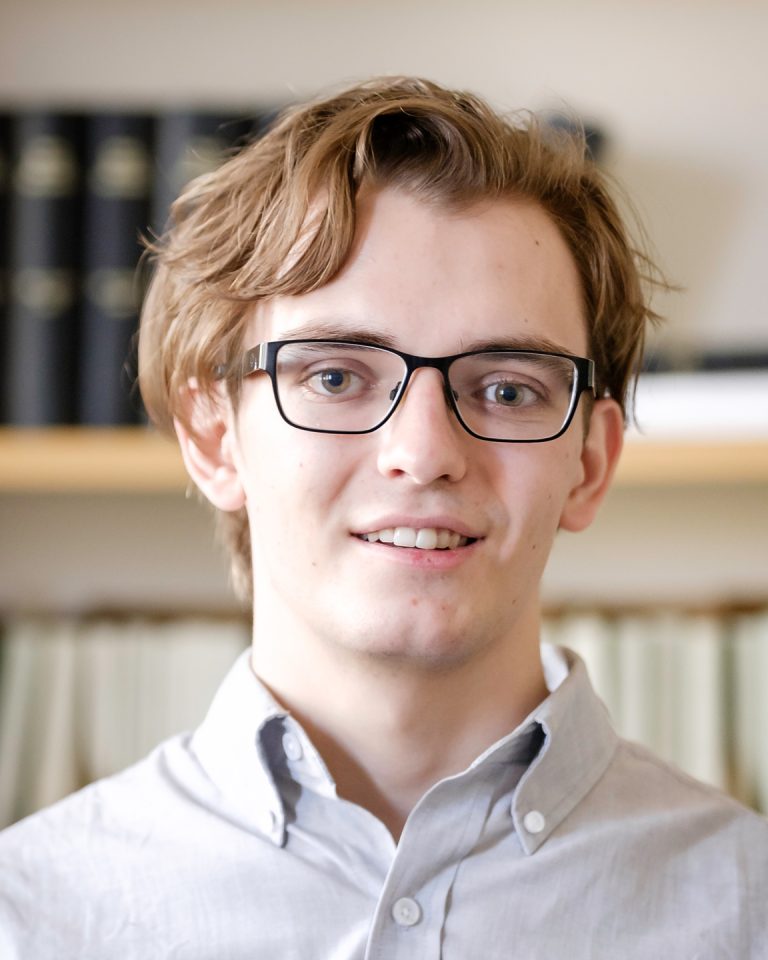Isaac Martin Awarded NSF Fellowship

Isaac Martin
Eleven University of Utah graduate students were awarded the National Science Foundation’s Graduate Research Fellowship Program (NSF GRFP) for 2021. The prestigious, and highly competitive fellowship, supports outstanding doctoral and research-based master’s students doing research in science, technology, engineering and mathematics (STEM) disciplines.
One recipient is Isaac Martin, who recently graduated from the U with an Honors Bachelor of Science Degree in Mathematics and Physics. Martin received a number of scholarships during his undergraduate years at the U, including an Eccles Scholarship and a 2020 Barry Goldwater Scholarship. He recently was awarded a Churchill Scholarship and will begin studies this fall at the University of Cambridge in England. After he completes his year in Cambridge, he will begin a Ph.D. program in mathematics at the University of Texas at Austin.
What was your research that served as the basis for receiving the fellowship?
“For the NSF GRFP statement I wrote about conjectures surrounding the "weak implies
strong" conjecture and the following stronger conjecture: "if 𝑅 is a strongly 𝐹-regular
ring of prime characteristic 𝑝 > 0, the symbolic Rees algebra is Noetherian at divisorial
ideals." The latter would imply the former, and they are some of the most important
open conjectures in the field of F-singularities. My most recent research involved F-singularities. I proved a small result, which said that the number of torsion divisors
is bounded by the reciprocal of F-signature.”
What does receiving the award from the NSF mean to you?
“Being recognized provides validation to my potential as a researcher and confirms
that the work I put in as an undergraduate was worth it. Renowned mathematicians who
had previously never heard of me judged both my past work and my future plans and
deemed that I have potential. That alone means a lot to me.
"The funding I’ll receive is also very important. Combined with a fellowship provided by UT Austin, during my Ph.D. program, I will have up to five years of funding, with no teaching requirements. This will leave me free to teach at my own volition and will allow me to dedicate most of my time to research. With this increased freedom, I hope to start an outreach program for high school students, specifically for those who have been homeschooled. Often, these students don’t have access to extra-curricular opportunities in math. Such a program would have been tremendously beneficial to me back when I was in high school.”
What do you plan to study UT Austin?
“When I begin my Ph.D. program at UT Austin, I intend to pivot into a different area
of algebraic geometry. Specifically, I hope to study mirror symmetry and tropical
geometry. Mirror symmetry is a branch of algebraic geometry that is motivated heavily
by string theory and quantum field theory. In recent years this has been studied in
conjunction with tropical geometry, particularly through the Gross-Seibert program.
"At this point in my studies, I know far less about mirror symmetry than I do about F-singularities, in no small part because the barrier to entry is quite high. Nevertheless, I'm quite excited by the prospect of working in this area because it features connections to many different subfields of math, including algebraic geometry, differential geometry, and complex geometry. Even more exciting to me is that this area of study stems from string theory and may one day provide answers to some of the biggest questions in theoretical physics, potentially changing our perception of the universe. This topic fits perfectly with my desire to work as a mathematician, while still aiding research in theoretical physics. In many ways, I couldn't ask for a better area of research!
"Interestingly, two of the biggest active researchers in the area—Mark Gross and Bernd Seibert—are professors at Cambridge and UT Austin, respectively. I will begin reading with both Gross and Seibert over this summer. After that, I hope to write a Part III essay with Gross during my year at Cambridge. By the fall of 2022, I hope to have developed the requisite background to begin actively conducting research in mirror symmetry and tropical geometry. I’m looking forward to it all.”
Congratulations, Isaac! We wish you the best.
